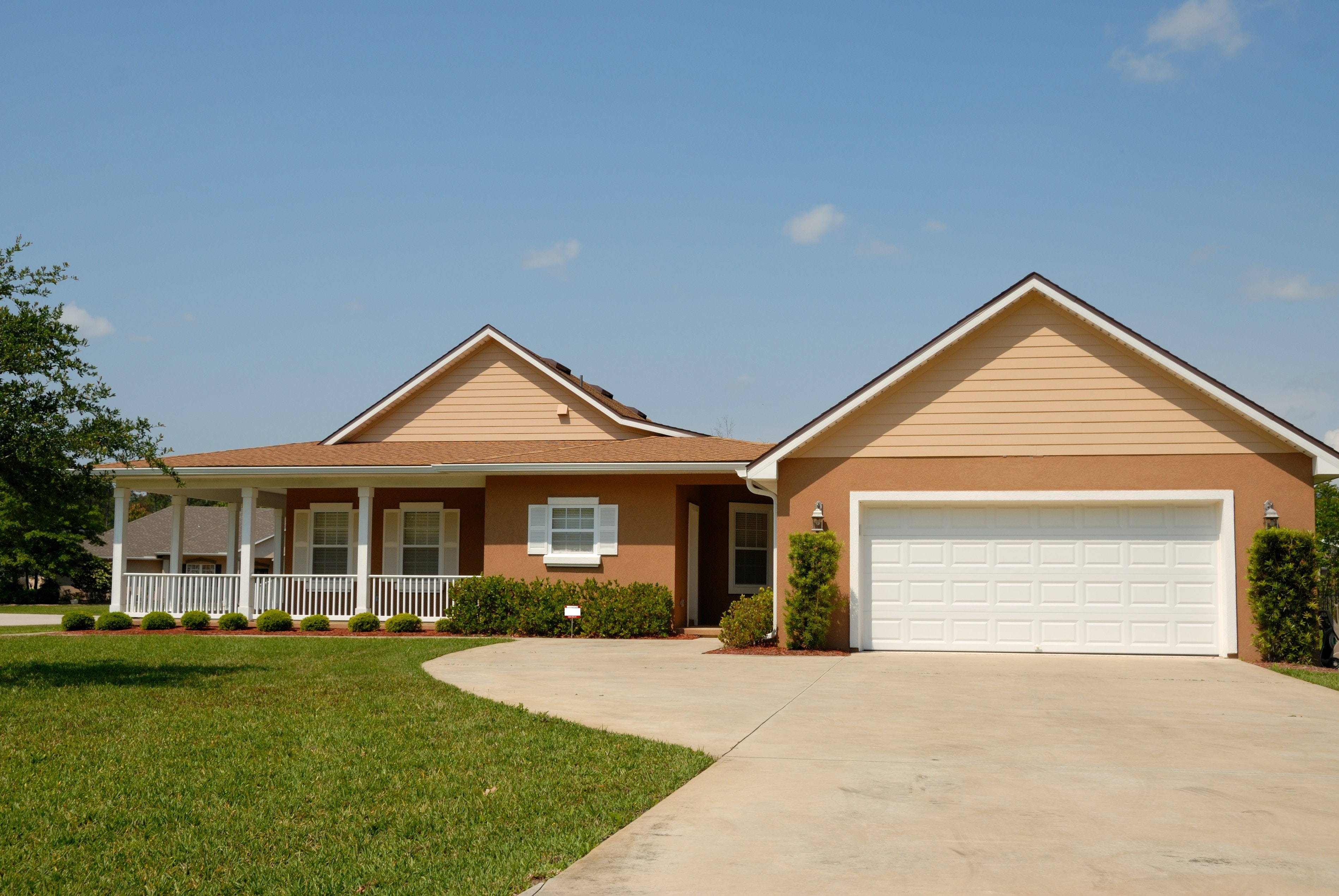 When buying a home, there are certain steps a buyer should go through before the home sale is official. First the buyer makes the offer, then the offer is accepted.
When buying a home, there are certain steps a buyer should go through before the home sale is official. First the buyer makes the offer, then the offer is accepted.
Next the buyer schedules the inspection and home appraisal. Finally, everyone is ready for closing.
It’s easy to overlook the impact of some of these steps, but when it comes to a mortgage, the home appraisal is actually quite important. Banks want to see that they are lending money for an investment that is worthwhile, so that appraisal is a crucial step to getting financing. Here is what buyers need to know about how the appraisal could affect their mortgages.
Understanding The Home Appraisal Process
The home appraisal gives a home valuation expert the chance to evaluate the home a buyer’s considering to determine its market value. Home appraisers are highly trained, state-licensed professionals that know how to evaluate homes and assign value to them.
The appraiser will use various approaches to determine the final appraised value. The appraisal typically happens after an offer on the home was approved but before the lender loans the money.
The Appraisal And Mortgage Approval
The appraisal is one factor that a mortgage lender considers when deciding whether or not to approve a final loan request. Even if a borrower had preapproval, a low appraisal could cause the mortgage to fall through.
Why is this? A lender only wants to lend enough to cover what the home’s actual value, and if the appraisal comes in lower than what the borrower is asking for, the lender can deny the loan.
If the lender does not deny the loan completely, they may refuse to lend more than the home’s value. In order to buy the home at the agreed price, the buyer may need to come up with the difference in cash at closing.
What Can Buyers Do If The Appraisal Is Low?
If an appraisal comes in low on the home someone wishes to buy, the buyer shouldn’t panic. It is possible to get a new appraisal at a higher value.
First, consider the condition of the home. Did the seller let some things fall into disrepair? If the seller fixes those items, a new appraisal may be higher.
Does the home look rundown or cluttered? This shouldn’t affect the appraisal, but it can sometimes cause the appraiser to trend lower. Sometimes, simply asking for a second opinion might get a slightly different appraised value. That said, if the appraisal is low, make sure to evaluate the purchase price. Is it in line with current market conditions and the overall condition of the home?
If the answer to that question is no, then the offer may be too much for the home. The appraisal, in this case, gives the buyer the opportunity to reevaluate the purchase decision.
When it comes to mortgage approval, the appraisal is one of the critical steps in the process. If a buyer has shopped wisely, the home should pass with flying colors, and soon the home sale process will be over. As always, your trusted real estate professional is the best resource for appraisal information in your local market.
 Are you in the market for a new home? If you are considering a mortgage, you may be curious about mortgage insurance, commonly referred to as PMI or MI. Let’s explore the topic of mortgage insurance, including how it works to reduce risk and how it benefits you as the mortgage borrower.
Are you in the market for a new home? If you are considering a mortgage, you may be curious about mortgage insurance, commonly referred to as PMI or MI. Let’s explore the topic of mortgage insurance, including how it works to reduce risk and how it benefits you as the mortgage borrower. When you are in the market for a new home, you may be faced with numerous options for financing your home. One of the choices you will have to make is whether to apply for a fixed or adjustable rate mortgage. In some cases, an adjustable rate mortgage (ARM) may be your best option, but keep in mind, they are not the answer for everyone.
When you are in the market for a new home, you may be faced with numerous options for financing your home. One of the choices you will have to make is whether to apply for a fixed or adjustable rate mortgage. In some cases, an adjustable rate mortgage (ARM) may be your best option, but keep in mind, they are not the answer for everyone. Going solar can make life sunnier for some homeowners. In addition to reducing energy dependence by “borrowing” energy directly from the sun, purchasers may also enjoy a 30 percent federal Solar Investment Tax Credit and other incentives, according to SEIA.
Going solar can make life sunnier for some homeowners. In addition to reducing energy dependence by “borrowing” energy directly from the sun, purchasers may also enjoy a 30 percent federal Solar Investment Tax Credit and other incentives, according to SEIA. Buying a home is an exciting and exhilarating time. Between the time your offer is accepted, and when you finally have keys in hand and you are ready to step into your new home, it can be stressful. The escrow period, also known as the closing, can take the most easygoing home buyer to the brink of insanity.
Buying a home is an exciting and exhilarating time. Between the time your offer is accepted, and when you finally have keys in hand and you are ready to step into your new home, it can be stressful. The escrow period, also known as the closing, can take the most easygoing home buyer to the brink of insanity. According to the 2017 Home Buyer and Seller Generational Trends Report, Millennials bought 34% of the homes sold; the largest of any generation last year.
According to the 2017 Home Buyer and Seller Generational Trends Report, Millennials bought 34% of the homes sold; the largest of any generation last year.  One of the challenges you will face when deciding how much money to put down on your new home is whether to put down a larger down payment or to take a bit of money from your down payment and use it to buy “discount points” to lower your interest rate.
One of the challenges you will face when deciding how much money to put down on your new home is whether to put down a larger down payment or to take a bit of money from your down payment and use it to buy “discount points” to lower your interest rate. Mortgage lenders weigh the risk of getting their principal and interest paid back by looking at the qualities of the prospective borrrower. And due to the amount of money being requested and lent to purchase homes, those requirements can become daunting. Working with a trusted and qualified mortgage professional makes this sometimes confusing process a little clearer.
Mortgage lenders weigh the risk of getting their principal and interest paid back by looking at the qualities of the prospective borrrower. And due to the amount of money being requested and lent to purchase homes, those requirements can become daunting. Working with a trusted and qualified mortgage professional makes this sometimes confusing process a little clearer. US homeowners now have over 5 trillion dollars in home equity which is a very large amount of money! So this year may be the year for a lot of cash out refinances and other home equity mortgage products. Most often, when you are purchasing a home, you are buying at or below the appraised value and you are making a down payment.
US homeowners now have over 5 trillion dollars in home equity which is a very large amount of money! So this year may be the year for a lot of cash out refinances and other home equity mortgage products. Most often, when you are purchasing a home, you are buying at or below the appraised value and you are making a down payment. When the chatter was at its peak on the 2018 tax law changes being proposed, one of the big areas of concern for homeowners was the elimination of the mortgage interest deduction. Right behind that issue was a similar treatment with regards to property tax deductions.
When the chatter was at its peak on the 2018 tax law changes being proposed, one of the big areas of concern for homeowners was the elimination of the mortgage interest deduction. Right behind that issue was a similar treatment with regards to property tax deductions.